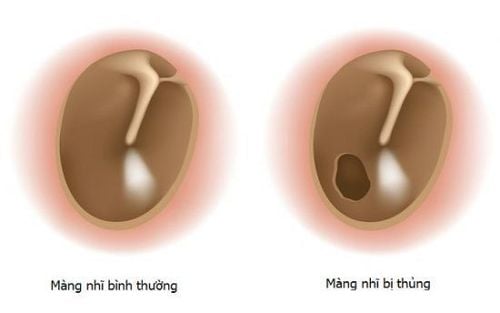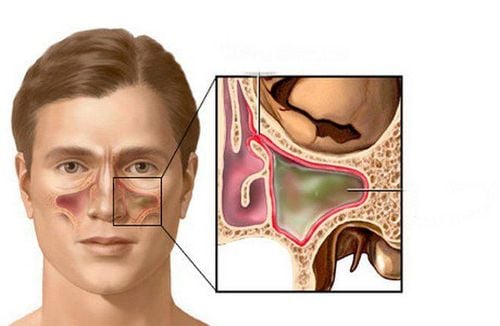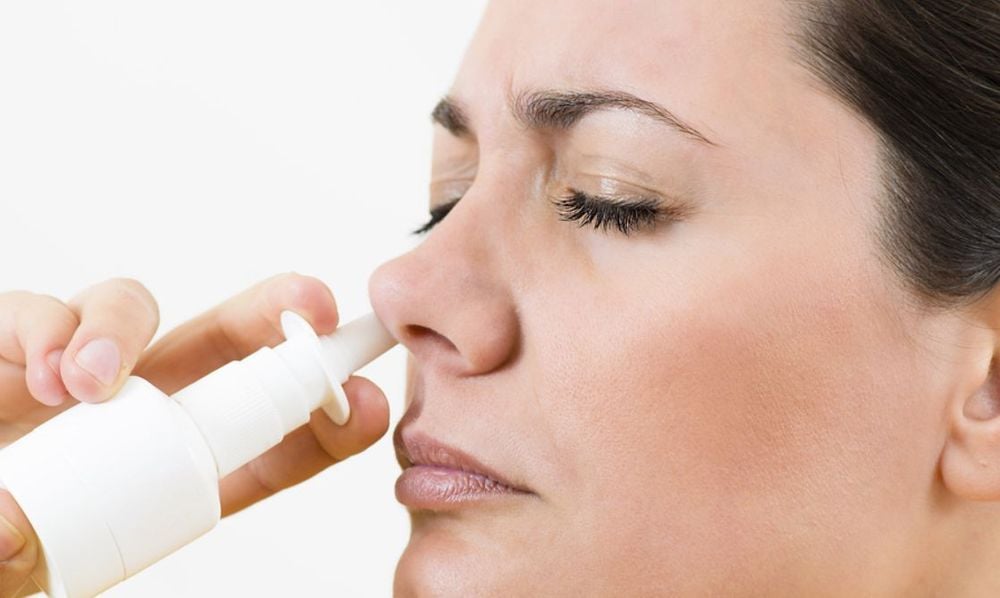Can forceful nose blowing cause eardrum perforation? The question seems funny and irrelevant, but there are definitely many people who wonder about it. However, this worry is not unfounded because many people after blowing their nose too strong have symptoms related to the ears such as tinnitus, slurred hearing, and earache,... So can a strong blow of the nose cause a perforation of the eardrum? Let's explore the answer in this article.
This article is professionally consulted by Ear, Nose, and Throat (ENT) doctors at the Department of Internal Medicine and Outpatient Services, Vinmec Hai Phong International General Hospital.
The ear, nose, and throat are closely connected and interrelated. If one part has an issue, it can impact the functioning and efficiency of the other two parts. The ear, nose, and throat comprise five to seven essential natural openings in the human body. Therefore, improper nose blowing can have negative effects, so it is crucial to learn how to blow your nose correctly.
1. Risks of blowing your nose too strong
The habit of forcefully nose blowing may seem harmless, but not everyone is aware of the unexpected dangers it can cause. So, what is the worst that could happen?
Forceful nose blowing can lead to esophageal tears and severe headaches due to air being pushed into the skull. Although rare, excessive force can also cause a ruptured eardrum or even fracture the eye socket.
For those who have previously had surgery or injuries resulting in defects in the bones separating the eyes or brain from the nose, blowing the nose too hard can push air into these spaces, leading to more serious problems that can affect vision or the central nervous system.
Forceful nose blowing can cause small blood vessels to rupture, resulting in nosebleeds.

2. Can Blowing Your Nose Too Hard Cause a Ruptured Eardrum?
The principle of blowing your nose correctly is to avoid pinching both nostrils shut and blowing forcefully through them, which prevents the nasal discharge from being pushed to neighboring areas like the ears, throat, or sinuses. If mucus reaches these parts, it can lead to various complications with mild issues include ear ringing and nausea, while more severe problems can result in middle ear infections or sinusitis.
In cases where the "compressed air" pressure is too high, it can even cause a ruptured eardrum. Therefore, blowing your nose too hard can indeed result in such damage, though it is relatively rare.
However, if symptoms such as ear ringing or pain occur, it is advised to visit a hospital or clinic for an accurate assessment whether the forceful nose-blowing incident has caused damage severe enough to require surgical repair of the eardrum.
For milder cases, the doctor may simply open a pathway to drain the mucus from the ear.

3. How to Blow Your Nose Properly

A common mistake many people make is blowing both nostrils at the same time for convenience and speed. However, to avoid complications such as a ruptured eardrum, it is recommended to blow one nostril at a time. Clearing one nostril at a time helps minimize pressure buildup, which is often linked to most associated complications.
Combining this technique with appropriate treatments can reduce the effort needed to clear your nose effectively.
Using decongestant medications, either oral or nasal sprays, can help unblock nasal passages and make it easier for mucus to drain. However, nasal sprays should not be used for more than three consecutive days to avoid rebound effects, which could worsen symptoms.
An alternative to blowing your nose is to use saline solution or gentle nasal irrigation to remove mucus from the nasal passages. This method is both effective and gentle.
Vinmec International General Hospital is not only equipped with state-of-the-art medical devices and international-standard facilities but also boasts a team of highly qualified doctors and medical staff. This combination ensures quick and effective diagnosis and treatment, providing patients with a comfortable experience during their visits and treatments.
To arrange an appointment, please call HOTLINE or make your reservation directly HERE. You may also download the MyVinmec app to schedule appointments faster and manage your reservations more conveniently.







